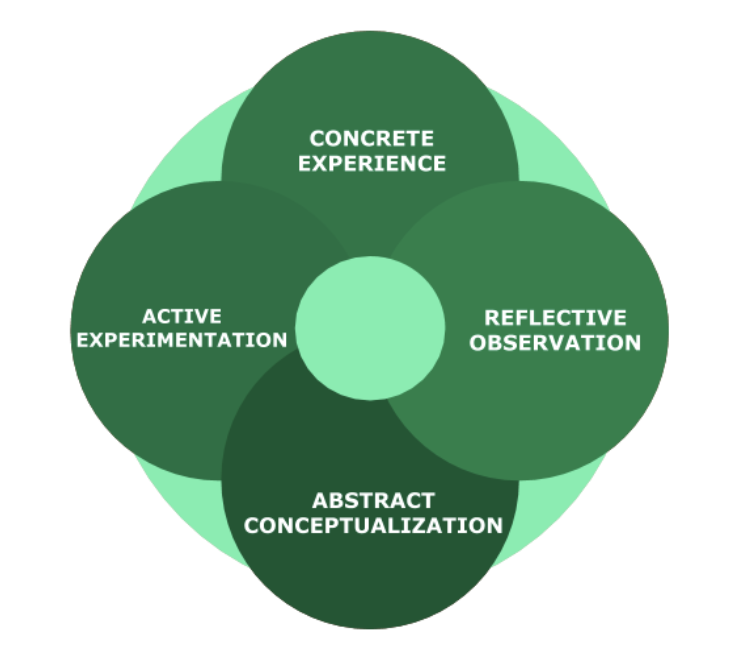
Which Are You? Accommodator, Assimilator, Converger, or Diverger
Learning theories remain a widely debated topic in the education field,.One that requires a deeper dive into the 1984 theory presented by psychologist David Kolb. Kolb’s proposed learning styles are one of the best-known learning styles theories in practice today.
Kolb believed that our learning styles emerge due to three key influencers: our genetics, life experiences, and the demands of our present environment. Much of Kolb’s theory is concerned with the learner’s internal cognitive processes. In addition to the first level of his theory, Kolb also developed a second level containing a method of experiential learning and a learning style inventory.

The First Level: Kolb’s Learning Styles
It is an advantage to knowing a student’s learning style to apply the most appropriate teaching methods.
Students benefit from experiencing a multitude of teaching techniques to achieve a well-rounded education, allowing them to flourish as well as push themselves beyond their comfort zone.
The Accommodator
Students within this learning style show strong inclinations towards Concrete Experience and Active Experimentation. Opposite of the Assimilator style, accommodators are do-ers. They enjoy putting plans into motion immediately and seeing real-time results.
Due to their reactive nature, Accommodators are often the greatest risk-takers and adventurers. They excel at thinking on their feet and changing their plans at a moment’s notice.
The Assimilator
Opposite of the Accommodator, Assimilators lean towards the areas of Reflective Observation and Abstract Conceptualization. Rather than acting quickly on impulse, understanding, and developing theoretical models/scenarios is one of their greatest strengths.
They tend to be more fascinated with abstract ideas rather than people. However, they are not incredibly concerned with the practical applications of theories. Assimilators often thrive in STEM fields or fields that involve planning and research.
The Converger
Convergers are those you look towards to turn theories and ideas into reality. People with this learning style have dominant abilities in the areas of Abstract Conceptualization and Active Experimentation. They are highly skilled in the practical application of ideas and tend to do best in situations with a problem that require a singular, ideal solution.
When solving problems, they typically use a trial-and-error approach. People with this learning style often work in technical fields or action-oriented jobs, such as sales and marketing.
The Diverger
Opposite of the Converger, Divergers’ dominant abilities tend to be Concrete Experience and Reflective Observation. People with this learning style excel at visualizing the “big picture” and organizing smaller bits of information into a meaningful whole.
Divergers tend to be creative, emotional, and wells of ideas. Musicians, artists, psychologists, and individuals with a keen interest in the fine arts, humanities, and liberal arts tend to have this learning style.

The Second Level: The Experiential Learning Cycle
To better understand the learning styles above, Kolb’s experiential learning style theory consists of a four-stage learning cycle in which the learner experiences four distinct instances:
- Concrete Experience – Immediate experiences serve as a basis for observation.
- Reflective Observation – The learner builds a general theory based on information gleaned from the experience.
- Abstract Conceptualization – The learner forms unique concepts and conclusions based on their rough theory.
- Active Experimentation – The learner tests the implications of these concepts in new situations. After this step, the process once again cycles back to the first stage of the experiential method.
For Every Learner
To learn more about programs that apply to every type of learner, visit The Digital Experience page at Fairborn Digital Academy. We encourage our students to learn in a way that fits their style, goals, and pace.



